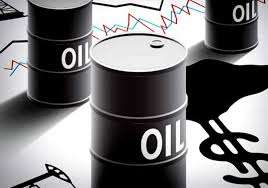Oil prices jumped on Thursday, February 24, 2022 with Brent rising above $100 a barrel for the first time since 2014 after Russia’s attack on Ukraine. This further exacerbates concerns about disruptions to global energy supply this year.
Brent crude oil rose as much as 8.9 percent to $105.45, the first time the international benchmark has crossed the $100 threshold since 2014, as traders assessed the likelihood of western sanctions cutting supplies from Russia. European natural gas contracts surged more than a third to €113 per megawatt hour.
The escalation of the conflict in Ukraine is dominating the global market narrative because of the potential for sanctions to cut Russia’s energy and resources out of global supply chains. “A situation which seriously chokes off energy supplies from Russia will affect the world as a negative supply shock”, says Sunil Krishnan, head of multi-asset funds at Aviva Investors.
Meanwhile, Trevor Greetham, head of multi-asset at Royal London Asset Management, warned that “geopolitical tension is raising oil prices, meaning the inflation that was deemed transitory a few months ago could last even longer”.
“A big inflation impact in the US and Europe means central banks could raise interest rates further than anticipated, which brings a risk of economic stagflation”.
Trevor Greetham
Rising energy prices
In January this year, a group of economists at JPMorgan Chase & Co. predicted that a surge in oil price to $150 a barrel would reduce global economic growth by close to 1 percent in the first half of the year.
Energy prices are already soaring in recent months amid a confluence of factors, including the pandemic, limited supply and growing tensions between Russia and Ukraine.
In the US, which is grappling with its highest inflation since the early 1980s, the average petrol price nationwide is $3.52 per gallon (3.8 litres), up nearly 90 cents since last year, according to GasBuddy.
Russia is the world’s third-biggest oil producer and second-biggest producer of natural gas, ranking among the top energy suppliers to the US and China, the world’s top two economies.
In 2020, Russia provided 7 percent of the US petroleum and crude oil imports, making it the country’s third-biggest supplier alongside Saudi Arabia.
That is one likely reason that the US in recent days signaled that sanctions against Russia would not be aimed at the country’s energy sector.
Sanctions on Russia
Despite this, US President Joe Biden on Thursday announced sanctions against a firm building the $11bn Nord Stream 2 gas pipeline, which is not yet in operation. Biden has vowed to impose further “severe sanctions” on Moscow shortly in coordination with allied countries.
Even sanctions not specifically aimed at the energy market could indirectly crimp exports of oil and natural gas or prompt Moscow to retaliate by limiting supply.
:max_bytes(150000):strip_icc()/GettyImages-155350081-5ab517afa9d4f900376a93e8.jpg)
War in Ukraine could also disrupt key pipelines in the country that supply Europe with natural gas. Trinh Ng, a senior economist at Natixis in Hong Kong, said “people should expect higher prices”.
“For net oil importers, prices will increase. The question is who will absorb it? As in, will governments subsidise households and corporates? Irrespective, it will be costly. My guess is that some countries will try to keep the lid on prices through subsidies to dampen the impact but overall inflationary pressures will rise, especially in countries with demand improving such as Southeast Asian and India”.
Trinh Ng
Putin on Wednesday, February 23, 2022 began a full-scale military invasion of Ukraine that was condemned by the US and many other European and western governments.
As explosions were reported near Kyiv early on Thursday morning, the Moscow Exchange suspended all trading. When trading resumed hours later, the benchmark Moex index plummeted as much as 45 percent before paring back to a 29 percent loss.
The rouble weakened to almost 90 per dollar, a record low against the US currency. London-listed shares of Russian steelmaker Evraz fell more than a quarter, and oil and gas producer, Gazprom lost 30 percent. EU leaders are expected to meet on Thursday, February 24, 2022 to decide further retaliatory measures on Russia. Barrel Barrel Barrel
READ ALSO: Ghanaian Banks More Exposed To Credit Risk In 2021 – BoG




















